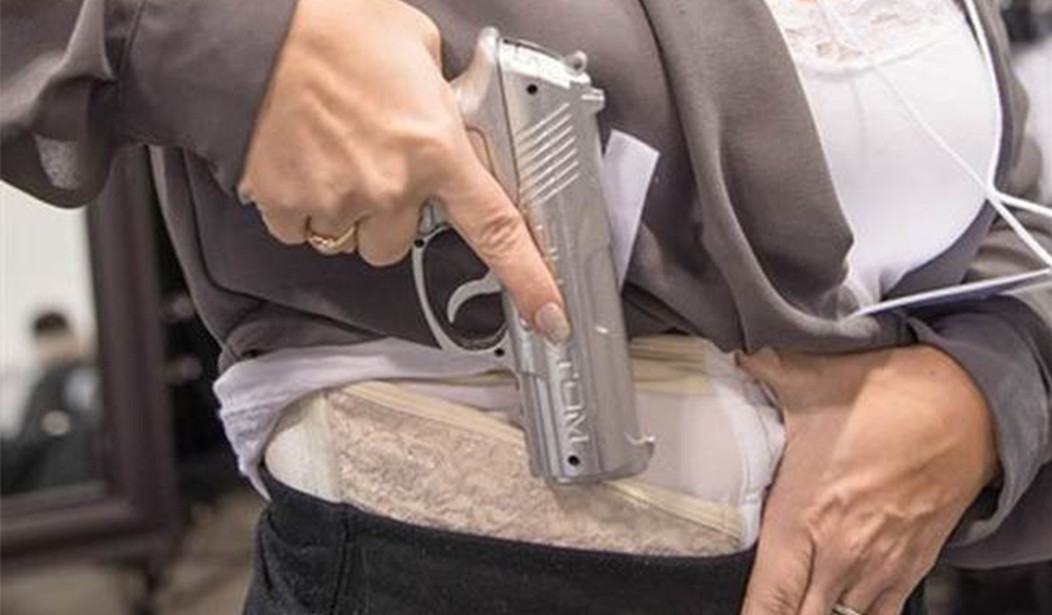The state of California is now 0-2 in its attempt to bar non-residents from exercising their right to carry. In CRPA, et al v. Los Angeles Sheriff's Department, et al, a federal judge granted injunctive relief earlier this year to CRPA memers, along with members of co-plaintiffs Second Amendment Foundation, Gun Owners of America, and Gun Owners of California. In her decision Judge Sherilyn Peace Garnett instructed California Attorney General Rob Bonta to come up with a process by which non-residents can apply for a California carry license, and the new rules took effect back in April.
Now a second federal judge has concurred with Garnett's decision and granted summary judgement to the Firearms Policy Coalition and several individual plaintiffs who'd also sued over the issue. On Tuesday, U.S. District Judge Cathy Ann Bencivengo declared California's policy barring non-residents from applying for a carry license facially unconstitutional under the Second Amendment, which means she found no circumstance in which the law might be able to be enforced against non-residents.
The judge ordered the California AG's office and the plaintiffs to confer and come up with a proposed order for an injunction within 30 days. The framework established under CRPA will probably be adopted (perhaps with some minor modifications), but I'm hoping the injunctive relief will apply to everyone, not just FPC members and the individual plaintiffs who sued.
California argued vociferously in favor of keeping non-residents from exercising their right to bear arms, claiming that various “locality-based licensing laws” from the mid-19th century were historical analogues to its prohibition on non-resident carry. Bencivengo, an Obama appointee who's served on the bench since 2012, didn't buy in to California's pitch.
The problem for the State is not the licensing laws themselves: Plaintiffs do not seek California’s licensing scheme stricken in its entirety. Instead, the State must provide a historical analogue for licensing laws that did not allow nonresidents to apply. For that category of restriction, the State provides a series of state laws from the early 1900s that appear to impose residency requirements on licenses. Ignoring that these laws do not date to the Founding or Ratification Era, many laws from the same period explicitly allowed nonresidents to apply.
In fact Bencivengo determined that multiple pieces of evidence offered by the state in support of their position actually supported what the plaintiffs were arguing: there is no national tradition of gun ownership that allows states to prohibit non-residents from exercising their Second Amendment rights.
For example, Connecticut in 1642 barred the sale of guns to those outside its jurisdiction unless the person possessed a license from a court or magistrate, without an explicit pre-application ban for nonresidents. The historical record also contains laws that provided “traveler exceptions” to carry laws. Sacramento law in 1876, cited by the State, specifically excepted “travelers” from a firearms licensing requirement that applied to residents.
The state had virtually no compelling evidence to back up its position, but I'm still pleased to see that Bencivengo actually and accurately applied the Bruen text, history, and tradition test instead of looking for some hare-brained theory that would allow her to uphold the law.
Ideally we won't need a government-issued permission slip to exercise our right to bear arms no matter what state we're in, and Tuesday's decision takes us one step closer to that reality. It's going to be a struggle to get California to recognize any carry licenses issued by other states, but the state and its anti-gun officials are being forced to acknowledge that our Second Amendment rights don't stop at the state line.









Join the conversation as a VIP Member